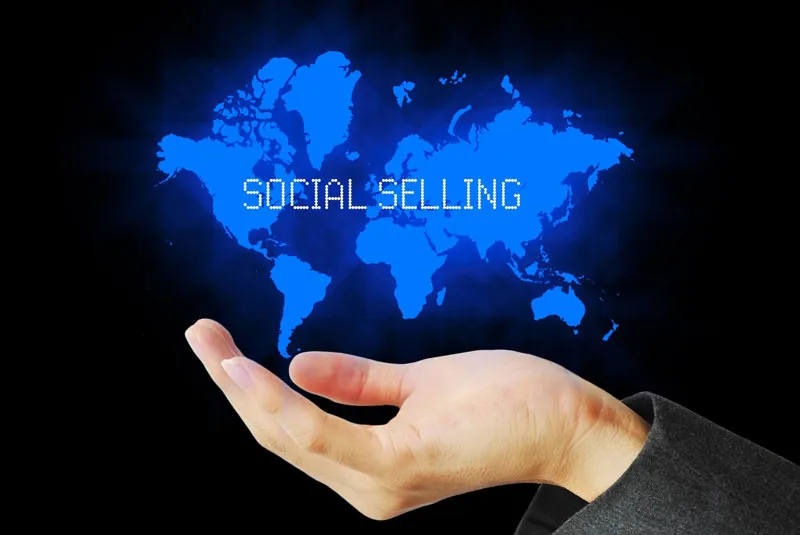Selling has evolved over the past few decades. Many sales professionals believe that the new way to sell is via 'social selling'. An article in Gartner says: “Digital CRM technologies that drive growth and elevate the customer experience top the list of CEOs’ priorities for the next five years. Data and analytics tools that facilitate consistent, contextual interactions across all communications channels help provide market differentiation."

Image: shutterstock
Not too long ago, cold calling was considered the way to go about sales. It no longer holds the same importance or relevance.
This was the era when salespeople used to
- Make cold calls
- Send cold emails
- Do solution selling
- Separate sales and marketing
Cold calls and cold emails are back in the cold storage. Most people don't pick up calls unless they know who is calling. Cold emails mostly go to one's spam folder, and even if they land in the inbox, less than five per cent get a response.
The era of social selling, however, entails:
- Social selling
- Engaging conversations
- Team play
- Challenge selling
The new sales playbook requires social selling with engaging conversations and selling as a team.
Social selling
In social selling, your social network becomes your pipeline. The more you network on social platforms, the stronger is your relationship and bigger is your pipeline. Successful sales professionals share problems and solutions on social networks and engage with industry leaders. Social selling has a huge impact on speed of sales, because potential customers have access to online reviews, social feedback, tweets, Facebook, LinkedIn and Pinterest. And just as the speed of sales has increased, so has the impact on the feedback loop. If people don't like the product they don't hesitate to voice it out on social media or write emails. Many brands have used this as a marketing tool with quick response to agitated customers, working well for both the brands and customers. Although social selling taps into your prowess for engaging with potential customers on social media, it does not exclude offline sales efforts either.
In other words, your social network becomes your pipeline. So it becomes more important to network with the right audience in the right amount. The more you network on social platforms, the stronger is your relationship and bigger is your pipeline. Successful sales professionals share problems and solutions on social networks and engage with industry leaders.
Most people buy products if it is referred to them by their friends or someone they know. So, it does become important to identify the best person who can introduce you to someone else.
Engaging conversations
You can sell better if you engage better. No one wants to be sold to; they want engaging conversations. People like it when they have engaging conversations which lead to sales. Take the example of a car dealer; he knows you are not going to buy the car when you reach the dealership for the first time. He starts to engage with you and starts to build a relationship so that he can educate you better. Once engaged, selling becomes a lot easier as you are not trying to directly sell but provide a solution through intelligent conversation.
In the new age of social selling, the sales professionals start engaging with their prospects on social networks. As the opportunity takes shape the engagement slowly moves from social networks to traditional emails/calls for confidential data exchange. That doesn’t mean that the social engagement takes a backseat; successful salespeople continue to keep the engagement on social networks alive.
Team play
According to a recent study, there are an average of 5.4 buyers/deal. Decisions are taken collaboratively. If it was difficult to sell to one individual earlier, it has become more difficult now. That's when selling as a team also plays an instrumental role. The divide between sales and marketing is diminishing quickly. In the new era, the whole organisation becomes your sales team, with everyone contributing one way or the other.
Challenge selling
The sales champions have a deep understanding of the prospect and their business and are capable of challenging the right person. They are capable of showcasing contrasting views to the decision makers and influencers. This only works if one has the right inputs/data about the contact and the company one is selling to.
We just covered why we need to be social. Now, how can you achieve the same and get more success under your belt?
- Find the people you want to engage with on Google/ LinkedIn/ Facebook/ Twitter.
- Most people have already built their networks on Google/ LinkedIn/ Facebook/ Twitter/ Phone book. How do you make that work for you?
- Set Google Alerts for companies you wish to follow to stay on top of it.
- Interact regularly. Out of sight is out of mind.
- Be authentic. People are smart and see through you. By being authentic you get authentic people who follow up and help you engage better.
- See how often you are engaging with your customers, by maintaining a spreadsheet
- Are you engaging with your prospects/customers on the right platform?
Are Did you hold interactions on your own or as a team ? It becomes important to track the same so that there is not too much information flow for the customer.
I faced the same problems on a regular basis and that’s when we got together and created Relatas.com. See how you interact with your contacts by taking this survey.







